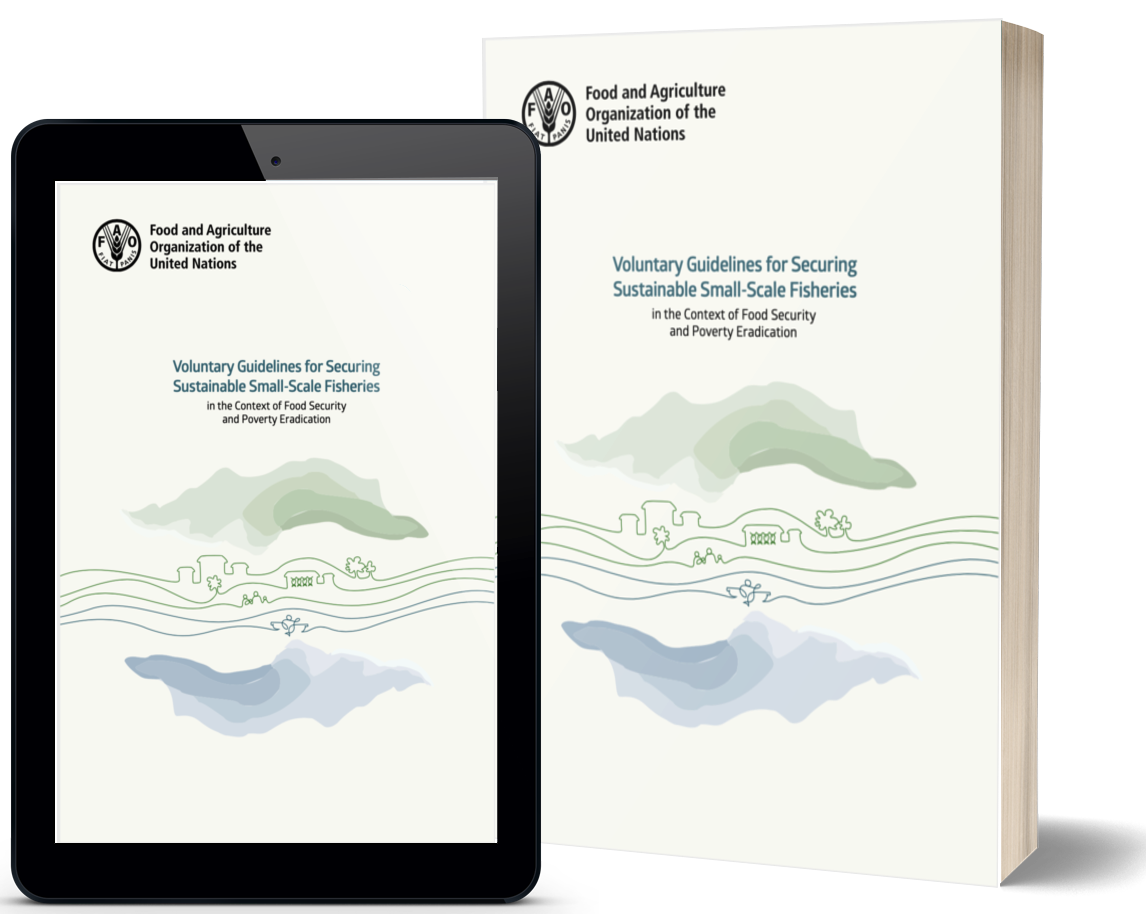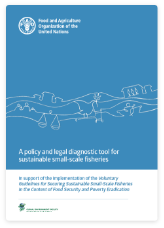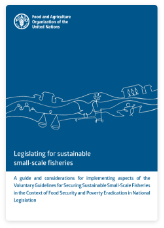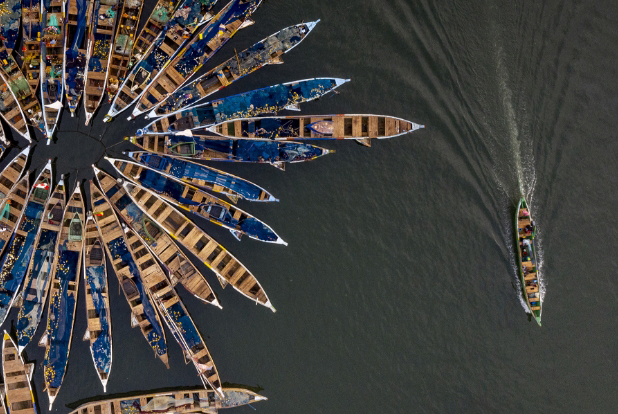Small-scale fisheries is a fisheries subsector that tends to employ labour-intensive harvesting, processing and distribution technologies to exploit aquatic resources in marine and inland waters, for subsistence or commercial purposes; the associated
activities may be conducted on a full-time, part-time and/or seasonal basis.
The definition of small-scale fisheries varies by country and can be formal, that is, defined by law and/or policy, or informal, defined by written or unwritten customs of fishing communities. States have established various parameters for defining small-scale
fisheries, which may include: the purpose of fishing, the size of boats and their fishing capacity, motor power, type of fishing gear and fishing area, among others.
Although small-scale fisheries differ across countries and regions, they are generally known for their significant contributions to sustainable development through: nutritious food, income, jobs, culture, leisure and livelihoods for coastal and riverside communities; preservation of local, traditional, customary and/or indigenous knowledge of fishing techniques and practices;
and promotion of resilience, collaboration and solidarity within fishing communities.
Some of the common challenges faced by small-scale fisheries are: marginalization from governments' priorities and support; suffering from poor conditions of living and social development; vulnerability to the impacts of climate change and natural disasters.





Paragraph 10.1 of the SSF Guidelines highlights the need for States to ensure policy coherence with regard to a range of issues, including: "national legislation; international human rights law; other international instruments, including those related to indigenous peoples; economic development policies; energy, education, health and rural policies; environmental protection; food security and nutrition policies; labour and employment policies; trade policies; disaster risk management (DRM) and climate change adaptation (CCA) policies; fisheries access arrangements; and other fisheries sector policies, plans, actions and investments in small-scale fishing communities". It also draws special attention to "ensuring gender equity and equality". It is therefore important to understand to which of the relevant international, regional and bilateral instruments and arrangements a country is a party.
In this section of the SSF-LEX country profile, users will find such instruments, which were selected based on their relevance and coverage of the range of issues (fisheries-specific and non-fisheries specific) outlined in the Small-Scale Fisheries Guidelines.